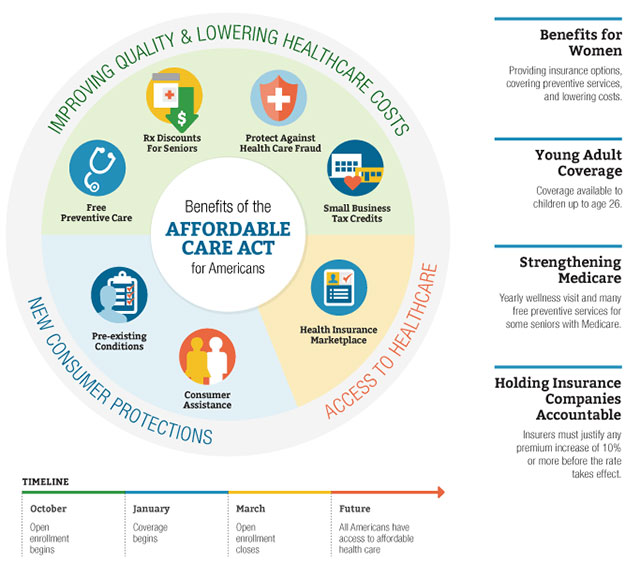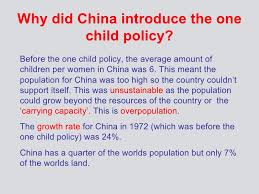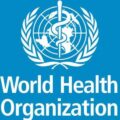What are public health policies?
Public health policy refers to plans, actions, and decisions that are taken to achieve specific public health care goals in a society or community. Public health policy can also be defined as a goal-directed course of action, taken by the government, or health institutions charged with health issues to deal with a public health problem such as illicit drugs, housing, teenage pregnancy, welfare for the elderly, etc.
Public health policymaking involves a series of activities that leads ultimately to a policy decision and the application of that decision.
Development of Health Policy
A health care policy relates to the organization, financing, and delivery of care associated with general health policy. Health determinants are factors that affect health policy and include medical care, individual characteristics, environment, and health status. The environment is involved in all factors of health policy because it takes into account health hazards like the consumption of coal and oil as well as the politics, culture, and economy of each area. There are two types of health policy, they are regulatory and allocative:
Regulatory health policy: helps the government to standardize specific groups and their behaviors, such as banning smoking in public areas to improve health.
Allocative health policy: is driven by income, services, or goods that benefit one group or organization over another. This includes funding for research and supporting Medicare.
Implementation of Health Policy
There are several components that are useful in implementing health policy. These components include innovation, a technical package, communication, partnerships, management, and political commitment. Health policies can be implemented at all levels of the government system. Small-scale health policies affect clinics, providers, and individual hospitals. Larger scale health policies affect organizations at the city, state, national, and international levels. Implementation is important to public health in order to improve the health quality and health services to improve the overall quality of life of each member of society. The involvement of the government, as well as stakeholders, can bring to light the health issues affecting the world and then work towards a common goal.
Public health policies frequently have side effects or unintended consequences. Because the environments that public health policies seek to influence or manipulate are typically complex adaptive systems (e.g. governments, societies, and large companies), making a policy change can have counterintuitive results. For example, Banning the sales of cigarettes and smoking will have a favorable effect on the public health and well-being of citizens, but it will also lead to the closure of cigarettes producing factories, loss of jobs, and an increase in crime rate in some cases, these are unintended consequences. In Addition, China’s one-child policy led to sustained periods of economic growth and an increase in self-reliance, it, however, led to systemic abortions and China’s aging population today is just one of the many unexpected consequences of the one–child policy. There are factors that interplay to define which is finally adopted, knowing the various concept of public policy will enhance the quality of advocacy and lead to better overall results.
What influence does public opinion have on health care policy?
CONCEPTS IN PUBLIC HEALTH POLICY
Globalization: Globalization Refers to the free movement of, services, goods, and people across the world in a seamless and integrated manner. Globalization can be thought to be the result of the opening up of the global economy and the concomitant increase in trade between nations. The world, as they say, is gradually becoming a global village and the need for synergy has become highly imperative, globalization allows nations especially developing countries to leverage the strength of thriving economies and collaborate in a manner that helps in finding solutions to political, social, and economic challenges.
Countries in Africa and other emerging markets have leveraged the power of great nations like the United States, the United Kingdom, India, and China in the area of health care and infrastructure in order to bridge the gaps that exist, such mutual collaborations have greatly enhanced the living standards and general well-being of the population of such countries. Globalization has made it much earlier for cost-effective generic drugs from India to reach needy markets in Africa saving millions of lives in the process.
Policy Agenda: Refers to a set of issues and problems that gets the serious attention of people involved in policy making (e.g., government officials, government decision-makers) with a view of taking some sort of action.
Understanding these concepts will enable public health practitioners as interested parties in public health policy to seek ways of ensuring that issues, problem, or subject that affect their members, and practice makes it into the policy agenda so that these issues can get the desired attention.
Policy Stream: The set of possible policy solutions or alternatives developed by experts, politicians, bureaucrats, and interest groups with the activities of those interested in these options (Eg. debates between researchers).
A clear understanding of the policy stream can save time and resources because this set of alternatives provides options to policymakers because it provides a clear view of pathways available and how they interact to create a window of opportunity for policy change.
Policy Windows: These are points in time when the opportunity arises for an issue to come onto the policy agenda and be taken seriously with a view to taking action. In practice, participants in the policy process rarely move from the identification of an issue or problem to seeking possible solutions. For example, hand sanitation and hygiene promotion have been canvassed for ages in Nigeria but were never taken seriously by the authorities until the recent outbreak of Ebola. This prompted the government to adopt the National hygiene policy.
Health Policy Triangle: Walt and Gibson proposed the health policy triangle as a way of systematically thinking about all the different factors at play in policy making. The health policy triangle is a highly simplified approach to a complex set of interrelationships and may give the impression that the four factors can be considered separately.
Top-down implementation theory: This approach views policy formation and policy execution as two distinct activities. Policies are agreed upon and decided at higher levels of an organization and then communicated to subordinate levels who are then given the responsibility of putting policy into practice. In developing countries, the culture over the years has tended towards the top-bottom implementation process which researchers have found to be encumbered with a lot of limitations. Understanding the intricacies and inadequacies of these concepts will enable policymakers as well as interested groups to either seek alternatives or strive to meet the pre-conditions that will ensure that policy implementation will be effective under this approach.
Bottom-up implementation theory: This system recognizes that individuals at lower levels of authority are likely to play an active part in the implementation and may have some discretion to reshape the objectives of the policy and change the way it is implemented. As one of the successful models in policy implementation, understanding this theory and the benefits that come with implementing it is a key ingredient, especially for project managers. For instance, the involvement of local actors in population and social interest groups in a project adopting the bottom-up approach will ensure participation and mobilization of the local population which will help in the identification of the strengths and weaknesses of the area and the drawing up a local development strategy that will ensure the effective implementation of the policy.
Principal-agent theory: Under this theory, an agency relationship is defined as a contract under which one or more individuals engage another Person referred to as ” agent” under this context to perform some form of duty or service on their behalf which will involve some form of transfer of some decision-making authority to the agent,” The principal-agent models may be employed to elucidate central problems in interaction between principals and agents in both policy implementation and public policy-making concerning performance and remuneration, furthermore, Principal-agent theory can be used to better understand and resolve dilemmas associated with so-called ‘information asymmetries’ between two sets of players – principals and agents – who frequently have divergent motivations, goals, and attitudes to risk.
Transaction Cost Economics Theory: This states that the efficient production of goods and services depends on lowering the costs of transactions between buyers and sellers by removing as much uncertainty as possible on both sides and Maximizing the ability of the buyer to monitor and control transactions. Uncertainty leads to volatility, therefore, the removal of as much uncertainty as possible will reduce the tendency to over speculate thereby minimizing the cost of transactions and improving and enhancing profitability across the board which is the main reason why firms exist.
Policy Evaluation: Policy Evaluation Identifies what happens once a policy is put into effect – how it is monitored, whether it achieves its objectives, and whether it has unintended consequences. The rising growth and increase in the significance of evaluation reflect the rising interest in ensuring that public programs are appropriate, efficient, and effective. Findings from policy evaluation also help to determine if policies should be changed or terminated and whether new policies should be introduced.

List of Public Health Policies
- Economics: Healthcare Financing
This type of public health policy focuses on the financing of healthcare services that spreads the economic risks of ill health to the wider population. Examples of these types of policies include government-funded health care through insurance and taxes.
- Medical Research Policy
This type of healthcare policy is promoted by those who believe that research in healthcare can both form the foundation for defining public health policy and evidence-based health policies.
- Health Workforce Policy
This public health policy approach is often based on the findings from health service research, this is known as evidence-based policymaking in healthcare.
- Health in Foreign Policy
This type of public health policy involves governments and agencies of the state, who incorporate a health dimension in their foreign policy in order to achieve global health goals and objectives.
- Global Health Policy
This type of public health policy involves the global governance structures that produce the policies that cover public health all over the world. It takes the health needs of the global human population on the planet above the concerns of individual nations.
Importance of Public health Care Policies
- Public healthcare policies often increase access to healthcare services, although they can sometimes achieve the opposite.
- Another importance of public health policy and perhaps the most important driving factor is the ability of public health policy to serve as a critical vehicle for providing healthcare to under-served and disadvantaged communities and populations.
- Public health policies can significantly reduce the financial cost of healthcare for the population if it is well researched and evidence-based.
- Public healthcare policies can drive growth and improve development when implemented correctly.
Also Read: Definition & Specializations in Public health
Copyright ©
Permission is hereby granted for the use of whole or parts of this article provided appropriate credit is given to www.publichealth.com.ng








4 Comments